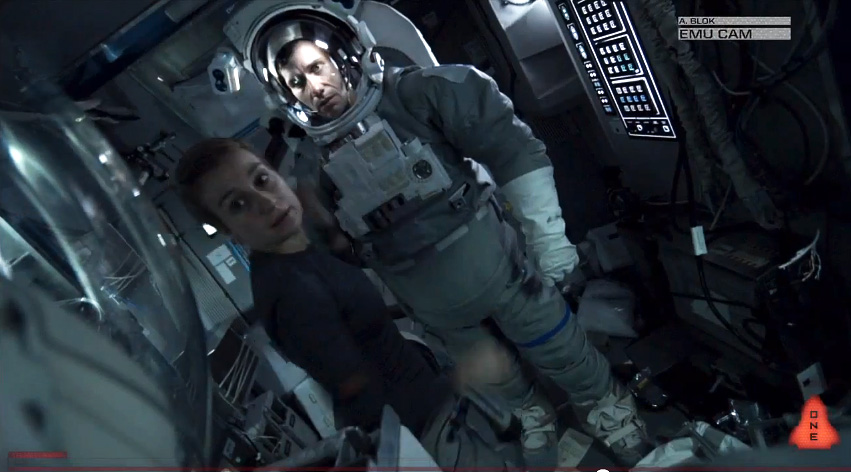With this being the time of summer that blockbuster fatigue begins to set in (if it hasn’t already) for those prone to the condition, the decision by Magnet Releasing to debut their new micro-budget film Europa Report on VOD is a smart one. It’s a character-based SF movie that aims to derive its suspense from filmmaking and performances rather than attempting to dazzle (or bludgeon) the audience with special effects. And it hits the target: Europa Report ranks with the better SF movies in recent memory, regardless of scale.
Its basic premise suggests Arthur C. Clarke’s novel 2010: Odyssey Two without the monolith: an international team of astronauts sets out to investigate Jupiter’s moon Europa firsthand, under the hypothesis that there might be life in the liquid water beneath its frozen exterior. They lose contact with Earth, but continue on with the mission, in the face of the astounding danger and isolation.
The familiarity of premise, and the traditions derived from all the works it shares, ends up being a tool writer Philip Gelatt and director Sebastián Cordero use to their advantage. Freed from the pressure to innovate, Gelatt simply and effectively creates a crew of scientists far more plausible than Hollywood’s usual doctoral students in thermonuclear bicep flexing, brought to life by a solid international cast (including District 9’s breakout star Sharlto Copley, the increasingly ubiquitous Michael Nyquist, and Anamaria Marinca, whom you could call the Anna Karina of the Romanian New Wave if you were so inclined).
What really makes Europa Report special, though, is what Cordero builds on the foundation built by the cast and script, which is a subtle and steady rise in tension over the course of the entire movie. Cordero builds suspense through elements as simple as where he puts the camera, or where the actors are in the frame. The conceit of the cinematography is that it’s all documentary footage, but for once it’s in a scenario where it’s not only natural but necessary to have cameras everywhere, alleviating the usual suspension of disbelief problem with the “found footage” genre.
Put in more emotional terms, a movie set in space should feel like it’s set in space, and Europa Report captures both the enormity of space and the claustrophobia six people in a too-small spaceship feel when spending years crossing millions of miles of it. The absence of artificial drama means that the discomfort and fear the highly-trained scientists evince is tightly controlled, and all the more affecting for it; when someone who never shows fear is visibly afraid, it’s even scarier.
There’s a point where the most suspenseful aspect of the movie is the apparent inevitability of the conclusion, which is impossible by the movie’s internal logic (and it’s a good enough movie that faith in its internal logic is possible). I won’t spoil it, except to say the ending is both something you’ll have seen coming and yet still surprising, in an exhilarating way. Thus closes the circle of Europa Report: the things that make it fresh are the things that are familiar, and vice versa.
It’s always nice to see a good (and good-looking) SF picture that doesn’t cost a zillion dollars. This isn’t to say that it’s not also awesome to see giant robots punching giant monsters, but a pleased nod of approval that there’s a bit of variety for SF fans at the movies these days. It’s even better when the movie’s as good as this one is. The motivation for sending the astronauts into space—basically, because going to space is cool—is the litmus test for Europa Report: if you find yourself nodding in agreement, you’re in for a thoroughly enjoyable hour and a half. If not, well, my condolences.
Europa Report sees wider release on august 2nd but you can watch it now through video on demand. Go here for more information.
Danny Bowes is a New York City-based film critic and blogger.










